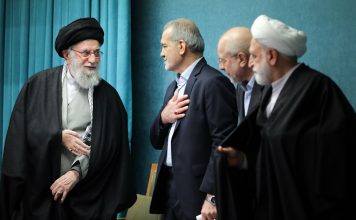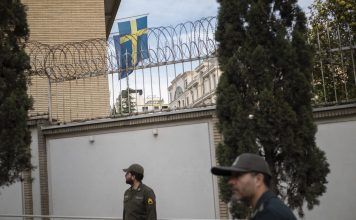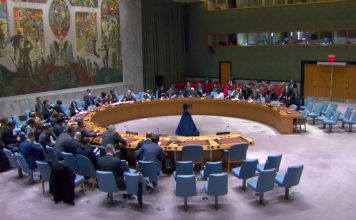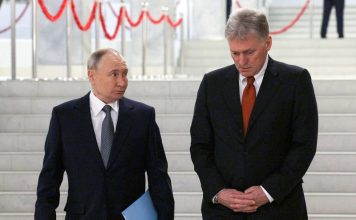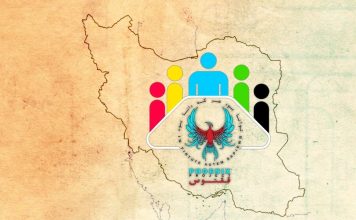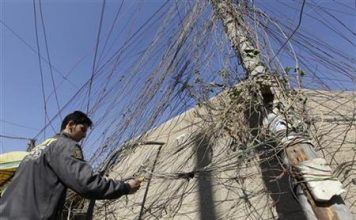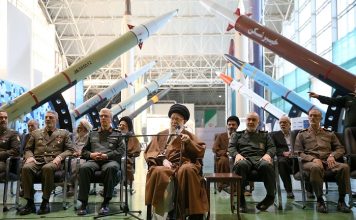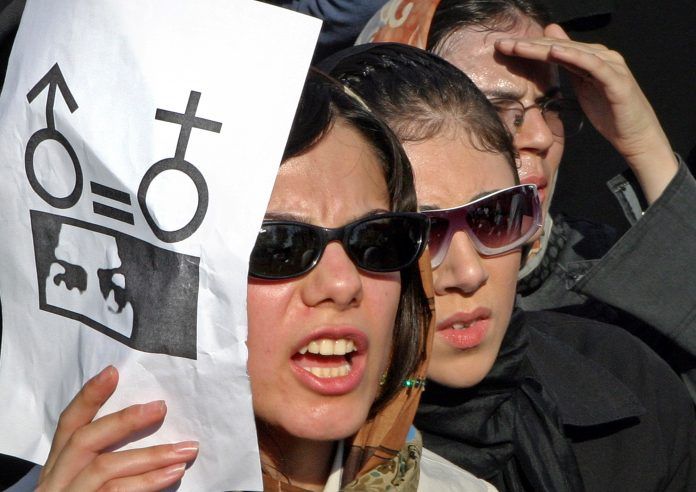
“Large-scale gender apartheid is being permitted” in Iran, where acts of gender-based violence are being committed, according to Javaid Rehman, the United Nations Special Rapporteur on the situation of human rights in Iran. He made the remarks during a Dec. 6 conference at Brunel University London, to mark the 75th anniversary of the adoption of the Universal Declaration of Human Rights (UDHR).
The UDHR was the first document in history which demanded that fundamental rights be universally protected. It was adopted on Dec. 10, 1948 by the UN General Assembly in Paris. The treaty has been adopted by 191 states, including Iran, which voted in favor of the UDHR in 1969. Iran is also a party to the UN Convention on the Rights of the Child, which sets out the civil, cultural, economic, health, political and social rights of children.
[aesop_image img=”https://kayhanlife.com/wp-content/uploads/2020/07/2009-06-13T110000Z_1237431791_GM1E56F060U01_RTRMADP_3_IRAN-ELECTION.jpg” panorama=”off” credit=”FILE PHOTO: A basij member with a cane beating out a woman on the ground during protests in central Tehran. REUTERS. ” align=”center” lightbox=”on” captionsrc=”custom” captionposition=”left” revealfx=”off” overlay_revealfx=”off”]
Speakers at the conference included Professor Alexandra Xanthaki, the UN Special Rapporteur on cultural rights; and Professor Manisuli Ssenyonjo, a professor of international law and human rights at Brunel University.
“Large-scale gender apartheid is being permitted in a countries like Afghanistan and Iran,” Rehman said. “It is depressing that states such as Afghanistan and Iran, who have confirmed non-discrimination of gender through their adoption of the Universal Declaration of Human Rights are now increasingly being condemned as committing gender-based violence.”
The UN has repeatedly denounced Iran’s regime for its violence against women and girls in the country, calling its draconian compulsory hijab legislation a form of “gender apartheid.”
Amnesty International on Dec. 6 accused Iran’s security forces of rape and other forms of sexual violence during the “Woman, Life, Freedom” movement.
The Amnesty report describes the harrowing ordeals of 45 survivors, including children, who were subjected to rape, gang rape, and other forms of violence by intelligence and security forces.
“Our research exposes how intelligence and security agents in Iran used rape and other sexual violence to torture, punish and inflict lasting physical and psychological damage on protesters, including children as young as 12,” Amnesty said.
Twenty-two-year-old Mahsa Jina Amini was arrested by Iran’s morality police in September 2022 for failing to observe the country’s forced hijab law. According to UN officials, she was tortured while in police custody, and died on Sept. 16 from her injuries.
Amini’s death sparked anti-government protests across the country, which gave rise to the “Woman, Life, Freedom” movement, calling for gender equality in Iran.
More than 500 women’s rights advocates are currently imprisoned in the country for their activism.
Gender discrimination is one of several human rights concerns in Iran raised by the UN and international human rights watchdogs.
Women’s Activism in Iran Continues, Despite Street Protests Dying Down in Face of State Repression
Discussing Article 18 of the UDHR, which sets out a universal right to freedom of thought, conscience and religion, Rehman said: “There was at one time a consensus which came from countries like Iran, Pakistan and Afghanistan. They were all in agreement with Article 18.”
“They were following the rights of religion or belief, but also the right to change one’s religion. So the question is what has happened to these countries?” Rehman added.
Religious discrimination in Iran in recent years has been widely documented, and affects members of the Jewish, Zoroastrian, Baha’i, Sunni Muslim and Christian faiths.
The United Nations General Assembly adopted a resolution on Nov. 15 criticizing the regime’s ongoing human rights violations, including “severe limitations and increasing restrictions on the right to freedom of thought, conscience, religion or belief.”
The resolution identifies Christians and “particularly converts from Islam” as victims of religious oppression in Iran subjected to abuses “including but not limited to increased harassment, intimidation, persecution, arbitrary arrest and detention, and incitement to hatred that leads to violence.”
Religious minorities are routinely subjected to arbitrary detention, seizure of their property and possessions, harassment, and surveillance.
Conversion from Islam to another religion is viewed as a form of apostasy by the regime, and punishable by death. Though it has never been codified in Iranian law — largely due to international pressure — Iran’s Press Act states “Anyone offending Islam and its holy places in the press and where this involves apostasy, will be judged for apostasy,” but does not set out a punishment.
The UN called on Iran’s regime to end what it called ‘systematic persecution’ of religious minorities in August 2022.

